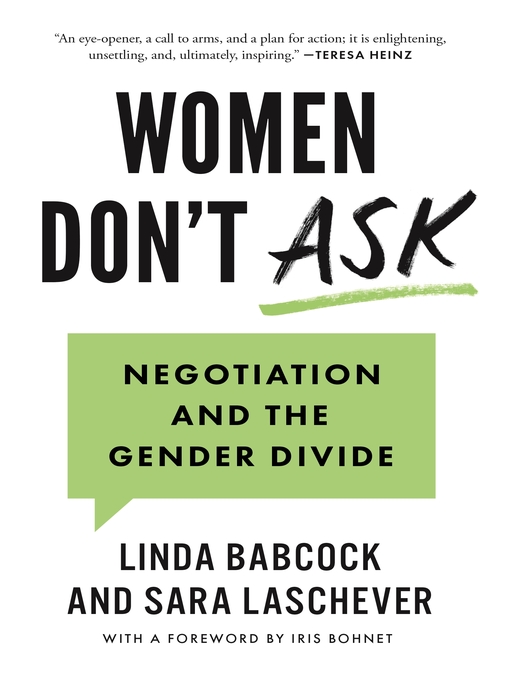The groundbreaking classic that explores how women can and should negotiate for parity in their workplaces, homes, and beyond
When Linda Babcock wanted to know why male graduate students were teaching their own courses while female students were always assigned as assistants, her dean said: "More men ask. The women just don't ask." Drawing on psychology, sociology, economics, and organizational behavior as well as dozens of interviews with men and women in different fields and at all stages in their careers, Women Don't Ask explores how our institutions, child-rearing practices, and implicit assumptions discourage women from asking for the opportunities and resources that they have earned and deserve—perpetuating inequalities that are fundamentally unfair and economically unsound. Women Don't Ask tells women how to ask, and why they should.
- Afrofuturism & Afrofantasy
- Cozy Fall Mysteries
- New ebook Additions
- "Look at the Cover on that One" Artsy Covers
- New Kids' eBooks
- Hot ebooks!
- New Teen's eBooks
- Comics & Graphic Novels
- Books with a Bonus!
- Popular titles
- Picture Book Love
- Read-Alongs
- Manga
- See all ebooks collections
- New Audiobook Additions
- Great Narrators
- Awesome Audio!
- Oprah's Super Soul Conversations Listen-Alikes
- New Kids' Audiobooks
- New Teen's Audiobooks
- Check these out!
- Audiobooks Under 3 Hours
- Read by the Author
- See all audiobooks collections
- Favorite Magazine Picks
- Crafts & Hobbies
- News & Politics
- Health & Fitness
- Cooking & Eating
- Just added
- Lifestyle
- Popular Magazines
- See all magazines collections

